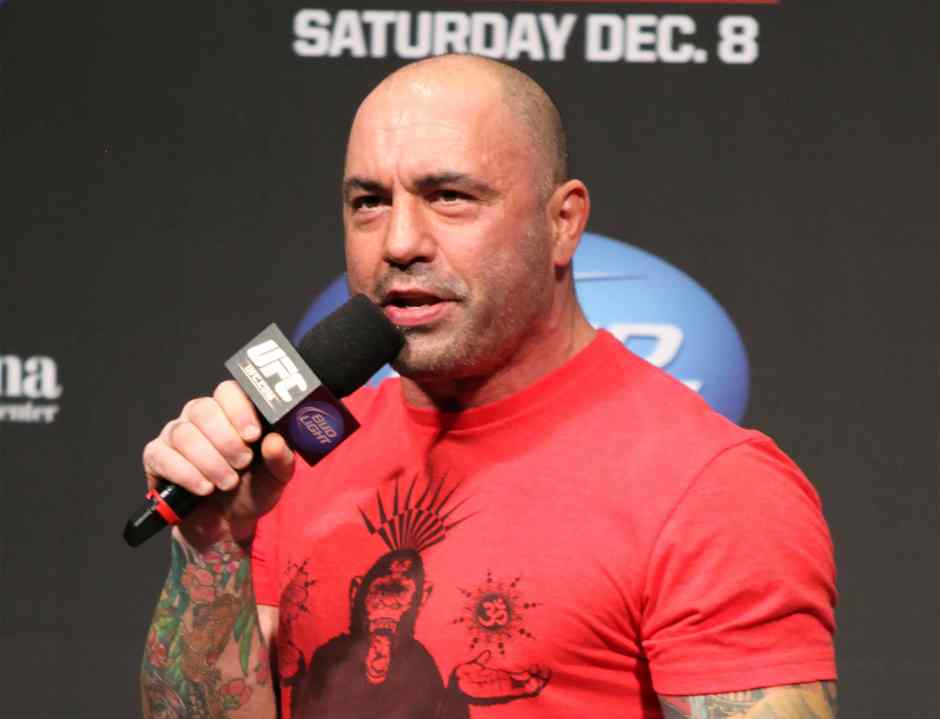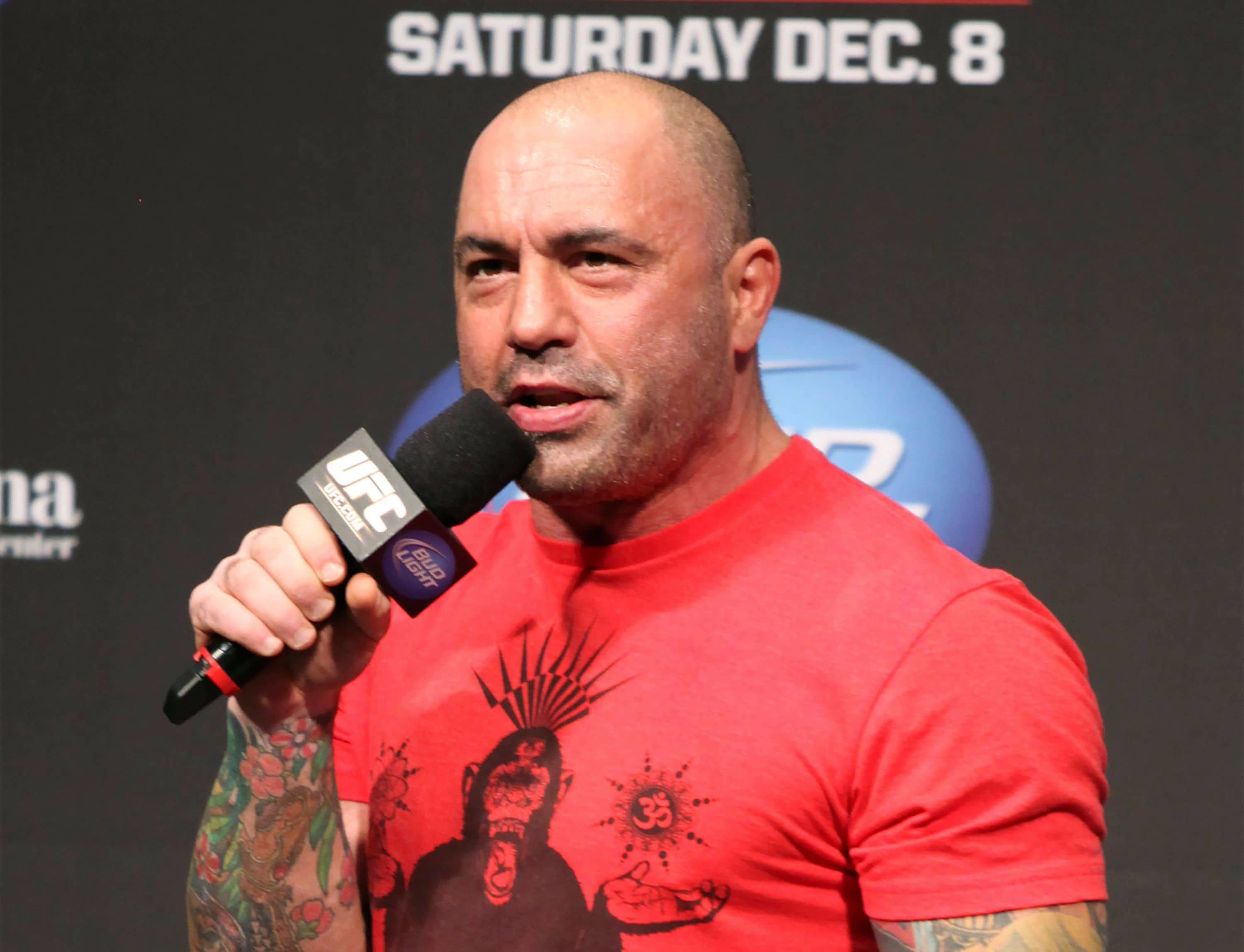Joe Rogan is wildly popular with men because his podcast most closely approximates the way the majority of us speak, think and interact with one another. By turns funny, clever, stupid, thoughtful and irreverent, there is nothing else like it in the media.
This means it needs to be cancelled. If you’re trying to organise a cultural revolution and bring down the patriarchy, the existence of The Joe Rogan Experience – a bastion of relatively guiltless masculinity that draws an audience of tens of millions of men three times a week – is unhelpful in the extreme.
It is surely now clear to everyone that fundamental to the enormous gains made over the last decade by the culture terrorists who would have us completely reconfigure our societies is the element of surprise. People who are surprised cede ground.
For men, lately the surprises come increasingly thick and fast. Constantly, we are now told – by the media, mainly, but also by corporations and educators throughout the Western world – that we are oppressors born into a legacy of guilt and shame, would-be rapists and abusers responsible for wreaking havoc on the planet generally and on women particularly.
Our every urge and inclination, from the desire to work hard and succeed to the pursuit of romance must, we are informed, be checked or restrained lest we somehow disadvantage or dominate people who don’t identify as male. Confusingly, we’re also impelled simultaneously to recognise and own our inherent beastliness while accepting that perceived differences between the sexes are nothing more than social constructs.
As a result, the defining question of our time for men is no longer about finding purpose or meaning in our existence, as it was for our forebears, but instead an effort of understanding whether it is us, or what is going on around us, that is insane. It’s bewildering.
Against this backdrop, then, unsurprisingly The Joe Rogan Experience until about a week ago was an enormously reassuring podcast – a place where people, not always men, talk in a way that is familiar to most men.
No one on the podcast seems, for example, to spend much time discussing pronouns, or identifying as something they’re very clearly not, or validating a ludicrous argument on a pretext as flimsy as their ‘lived experience’. Instead, the show features interesting people, men mostly – from scientists and writers to cage fighters and comedians – expounding within a pleasingly non-corporate and permissive setting on their area of expertise.
For his part, Rogan – the archetypal man’s man – is a superb host. Politically impartial and quick to laugh, he never hectors or seeks to elicit the gotcha moments so beloved by modern news media. Instead he keeps the conversation ticking over by asking questions that are usually well informed, and, when he senses his guest needs a rest, talking at length about cars or martial arts or stand-up comedy. If the mood takes him, he will offer a drink or a joint.
The conversations last about three hours and Rogan doesn’t try to influence the perception of the listener. Even when he seems to suspect he is being lied to, all he will do is get his guest to repeat whatever it is they’ve said and say ‘really? Wow, that’s interesting.’ This is the way non-confrontational men tend to communicate when they socialise in groups.
Over the last two years I’ve listened to hundreds of hours of the Joe Rogan Experience, usually while jogging, or doing something even more manly. As a result, I feel able to say confidently that he is not by any stretch of the imagination a racist, which is the latest allegation against him, made after last week’s allegation, that he was spreading misinformation about vaccines, seemed to be losing traction.
Videos have appeared on social media showing Rogan saying the dreaded n-word repeatedly and seeming to compare Africa to the Planet of the Apes. In each instance, all context has been stripped by whoever made the video – all we see is Rogan saying the forbidden words in different settings.
No doubt someone out there possesses technology capable of wading through thousands of hours of audio to identify each instance and to provide the missing context, but until we have it Rogan and Spotify, which paid $100m only two years ago to acquire exclusive rights to his podcast, are clearly in a difficult position.
It is for this reason, presumably, the streaming giant seems suddenly less resolute in its support of Rogan than last week, when it was Neil Young and Joni Mitchell making demands. Over the weekend, Spotify deleted 113 episodes from Rogan’s back catalogue it deemed to contain more content that could be presented as ‘problematic’.
For his part, Rogan has apologised for his comments and defended himself by saying that for several years he used to use the actual n-word in conversation, rather than saying ‘the n-word’. He said: ‘I thought that as long as it was in context, people would understand what I was doing’.
A second video has also appeared showing a young Rogan laughing as tough-guy comedian Joey Diaz tells an unpleasant story about getting aspiring female comedians to fellate him in return for the opportunity to perform on stage. Again, that’s hard for Spotify to defend, even if it wasn’t Rogan telling the story.
Could we be about to see the cancellation of Rogan, now one of the biggest male stars in the world? At the start of the year, such an idea would have appeared unthinkable – his position on the modern cultural firmament seemed so large as to be unassailable. Now, suddenly, he appears vulnerable.
What a seismic victory in the culture wars that would be for those who take issue with masculinity: an unequivocal statement that there is no longer a place in the mainstream discourse for people who talk and think like Rogan.
Most men, in other words. Say it ain’t so, Joe.







Comments